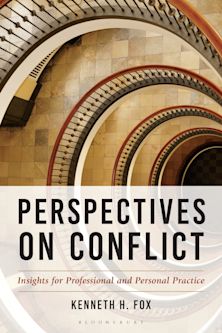- Home
- ACADEMIC
- Politics & International Relations
- Politics - Other
- Power and Moral Education in China
Power and Moral Education in China
Three Examples of School-Based Curriculum Development
Power and Moral Education in China
Three Examples of School-Based Curriculum Development
This product is usually dispatched within 2-4 weeks
- Delivery and returns info
-
Flat rate of $10.00 for shipping anywhere in Australia
You must sign in to add this item to your wishlist. Please sign in or create an account
Description
Chinese moral education reform in the last three decades represents the most significant decentralization of decision-making power since the foundation of People’s Republic of China in 1949. On one hand, it shows how de-politicized China’s moral education curriculum has become following the introduction of China’s “Open-door” policy and economic reforms and the resultant social transformations. On the other hand, it reveals persistent problems in moral education caused by political stresses and tight state control.
To explain these tensions, Power and Moral Education in China analyzes the characteristics of power relationships in school moral education curriculum goal-setting, content and pedagogy selection, and implementation. The ultimate purpose is to identify not only what factors impact Chinese moral education curriculum decision-making at the school level, but also how and why.
Through a multiple case study conducted during 2008 in three schools in Shenzhen City, and based on four major data collection instruments (observation, interview, questionnaire, and document review), Wangbei Ye analyzes how power relationships have evolved in school moral education, and how and why school power affects school moral education.
Contrary to the common belief that Chinese schools are passively impacted by external forces in moral education curriculum development, this book suggests that school power is a “semi-emancipatory relationship” that acts as a major force shaping moral education. This means that although both the Chinese Communist Party and the state are positioned to control schools and moral education, schools nonetheless have the power to either negotiate for more influence, or partly emancipate themselves by collaborating with other external forces, responding to grass-root needs, empowering school teachers and adjusting internal school management style. This helps to explain the influence of Chinese schools in moral education and suggests a broader theory of power relationships in curriculum.
Table of Contents
Chapter 2: Power and Curriculum: Western Perspectives
Chapter 3: Power and Curriculum in China: The Case of School-based Moral Education
Chapter 4: Example 1: State-led Power Decentralization
Chapter 5: Example 2: School-led Power Sharing
Chapter 6: Example 3: Market-led Power Redistribution
Chapter 7: Towards an Understanding of Power as Semi-emancipatory Relation: Comparison and Discussion
Product details
| Published | 15 Apr 2014 |
|---|---|
| Format | Hardback |
| Edition | 1st |
| Extent | 192 |
| ISBN | 9780739175477 |
| Imprint | Lexington Books |
| Illustrations | 7 BW Photos, 11 Tables |
| Dimensions | 237 x 161 mm |
| Series | Emerging Perspectives on Education in China |
| Publisher | Bloomsbury Publishing |
About the contributors
Reviews
-
An important book, not only for scholars of moral and citizenship education, but for anyone interested in Chinese education today, and particularly those engaged in comparative and international studies. In this very readable account, Dr. Ye explores the dynamics of politics, power, and social change in the work of teachers and schools. Through three engaging school-based case studies, she considers the opportunities and tensions faced by those trying to bring about curriculum change in moral education, an area of the curriculum which remains highly politicised and of key importance to the Chinese state. This topical and accessible research deserves a wide readership.
Aubrey Osler, University of Leeds and Buskerud and Vestfold University College
-
As China’s economy is progressively opened to the West, so too its scholars have started to reveal how the social system, little by little, responds to the authoritarian control of the Chinese Communist Party. What is revealed in these pages by no means amounts to a revolution or even a mild challenge to the CCP. Yet there is a glimpse of the way professionals in schools are able to negotiate aspects of moral education that suits their particular needs and indeed their constituencies. For some schools there is straightforward conformity to CCP policies, but for others there are detours and side streets that provide space for new ideas and indeed directions that suit local needs and respond to local pressures. The case studies reported here are illuminating for what they show us about school level decision making as well as macro conditions in twenty-first century China. The book is an important window on a part of the world that is assuming increasing importance for everyone.
Kerry John Kennedy, Hong Kong Institute of Education



































